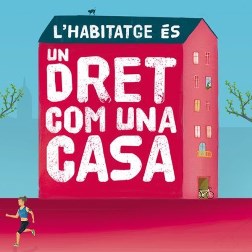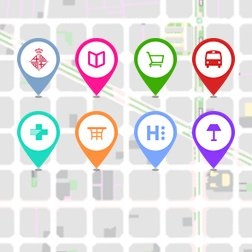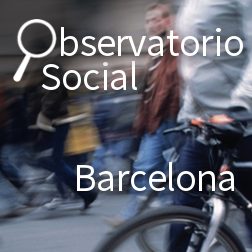The life satisfaction level of children drops following the pandemic
26/08/2022 - 12:33
Barcelona’s children aged 10 and 11 are less satisfied with their lives overall than they were before the pandemic: the score of 9 out of 10 in 2017 dropped to 8.7 out of 10 in 2021. This is the conclusion of the Subjective Well-Being Survey of Children in Barcelona, in which 5,000 children from 58 schools took part. This edition of the survey incorporated new questions, including on use of mobiles, public spaces, feelings of loneliness.
Only 60% of the city’s children aged 10 and 11 are very satisfied with their lives (69% before the pandemic), with the rest having a level of well-being hardly desired or expected for their ages: 30% say it is sufficient (23% before the pandemic) but 10% say it is not or hardly at all (8% before the pandemic).
Differences according to age, sex and economic context
The children express less satisfaction with their lives as they grow older: there are 18.3% fewer children very satisfied with their lives at the age of 11 than at the ages of 8 and 9 (59.9 % compared to 75.2%).
As for the results between the sexes, 2021 saw almost twice as many girls (12.9%) as boys (7.4%) who were either unsatisfied or hardly satisfied with their lives. What is more, the differences according social and economic context have widened: there are even more unsatisfied or hardly satisfied children growing up in economically underprivileged contexts (12.8%) than in more privileged contexts (8.9%). That difference was smaller in 2017, that is, 9% and 7% respectively.
Changes in areas of life following the pandemic
The area of life least rated by children aged 10 and 11 in the city continues to be amount of free time available (fewer than 50% of children are very satisfied). Personal independence and adult schooling are still among the aspects least rated by children (with fewer than 65% very satisfied). 2021 saw a further two areas join the least rated among children: classmates (54.8% very satisfied) and neighbourhood life (55% very satisfied).
New technologies, loneliness, public spaces, mobility and social concerns
Almost half of the children aged 10 and 11 in Barcelona now have their own mobile phones (47.5%) and use them intensely or even to a problematic extent, as 75.4% find it hard to stop using them
Also notable is that fact that 12.5% of children aged 10 and 11 usually feel alone. The number of girls who feel alone is always or very often higher than the number of boys (15.5 % compared to 9.8%). On the other hand, there are nearly twice as many children who always or very often feel alone among those growing up in wealthy economic contexts (16.9% compared to 9.1%)
As for outdoor spaces, the children believe they do not have at their disposal the ones they would like, fewer than half of the children have described themselves as very satisfied with the neighbourhood’s and city’s outdoor spaces (46.3%), whereas 33.1% are sufficiently satisfied, 12.9% hardly satisfied and 7.8% not at all satisfied. This is a specific area where satisfaction drops with age.
As for social concerns, we should highlight the extensive awareness the children have of the problems for the world’s future. More than 75% of the children aged 10 and 11 are concerned with the issues of the local and international Agenda: 53% describe themselves as extremely worried about pollution and climate change and 49% about water, food and energy shortages.













